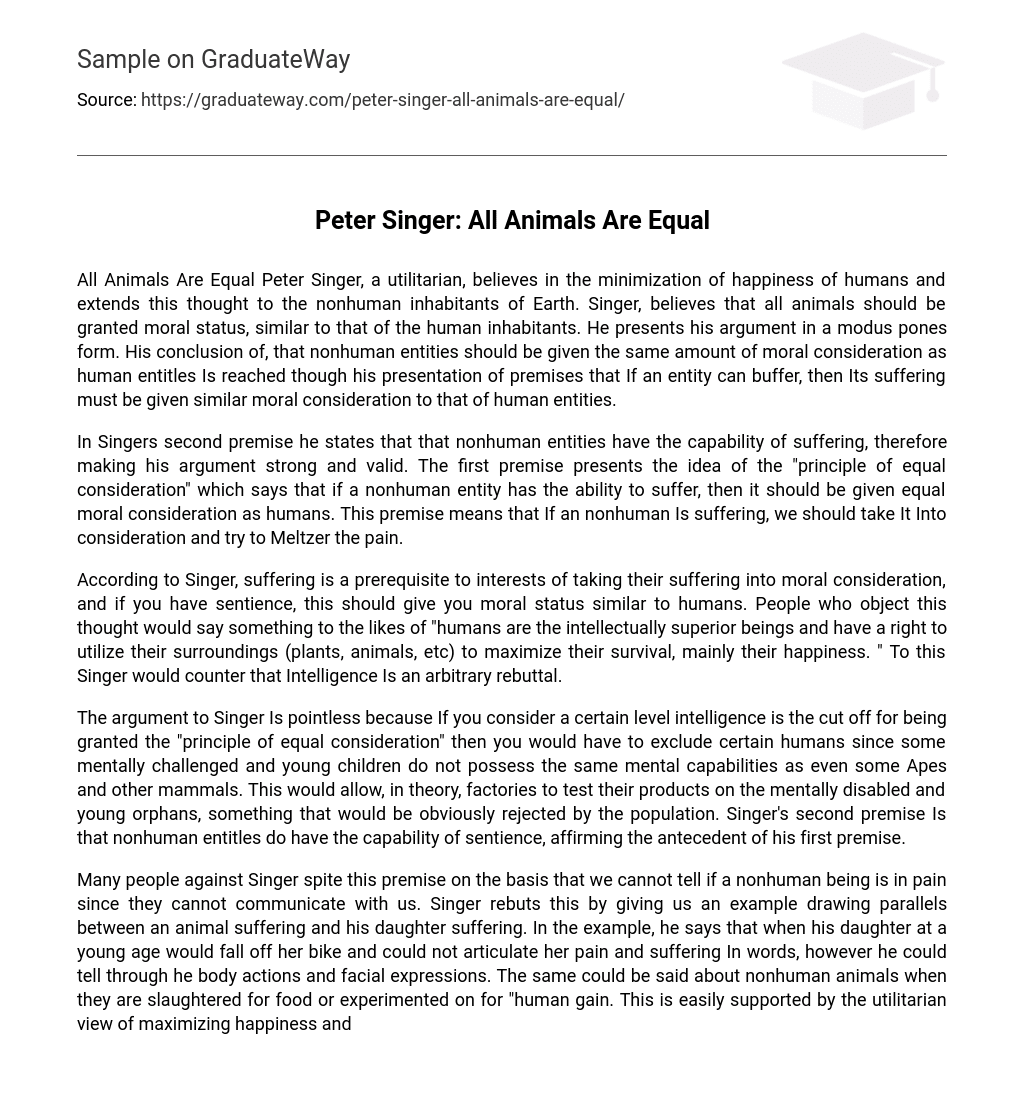All Animals Are Equal Peter Singer, a utilitarian, believes in the minimization of happiness of humans and extends this thought to the nonhuman inhabitants of Earth. Singer, believes that all animals should be granted moral status, similar to that of the human inhabitants. He presents his argument in a modus pones form. His conclusion of, that nonhuman entities should be given the same amount of moral consideration as human entitles Is reached though his presentation of premises that If an entity can buffer, then Its suffering must be given similar moral consideration to that of human entities.
In Singers second premise he states that that nonhuman entities have the capability of suffering, therefore making his argument strong and valid. The first premise presents the idea of the “principle of equal consideration” which says that if a nonhuman entity has the ability to suffer, then it should be given equal moral consideration as humans. This premise means that If an nonhuman Is suffering, we should take It Into consideration and try to Meltzer the pain.
According to Singer, suffering is a prerequisite to interests of taking their suffering into moral consideration, and if you have sentience, this should give you moral status similar to humans. People who object this thought would say something to the likes of “humans are the intellectually superior beings and have a right to utilize their surroundings (plants, animals, etc) to maximize their survival, mainly their happiness. ” To this Singer would counter that Intelligence Is an arbitrary rebuttal.
The argument to Singer Is pointless because If you consider a certain level intelligence is the cut off for being granted the “principle of equal consideration” then you would have to exclude certain humans since some mentally challenged and young children do not possess the same mental capabilities as even some Apes and other mammals. This would allow, in theory, factories to test their products on the mentally disabled and young orphans, something that would be obviously rejected by the population. Singer’s second premise Is that nonhuman entitles do have the capability of sentience, affirming the antecedent of his first premise.
Many people against Singer spite this premise on the basis that we cannot tell if a nonhuman being is in pain since they cannot communicate with us. Singer rebuts this by giving us an example drawing parallels between an animal suffering and his daughter suffering. In the example, he says that when his daughter at a young age would fall off her bike and could not articulate her pain and suffering In words, however he could tell through he body actions and facial expressions. The same could be said about nonhuman animals when they are slaughtered for food or experimented on for “human gain. This is easily supported by the utilitarian view of maximizing happiness and more importantly minimizing pain and suffering. In conclusion, Singer’s premises of the principle of equal consideration and that many nonhuman entitles do suffer, sufficiently back up his conclusion. In the backing nature should be greatly limited or banished. In his second premise, saying that animals do contain the ability of self-awareness is backed by drawing parallels between his daughter falling and expressing pain through body language. These premises do prove to give Singer’s argument validity and power.





